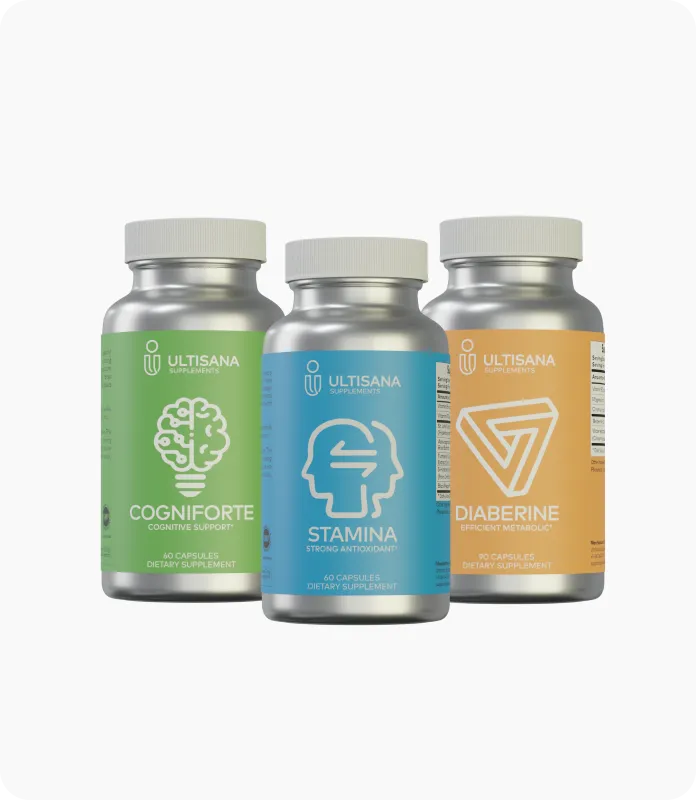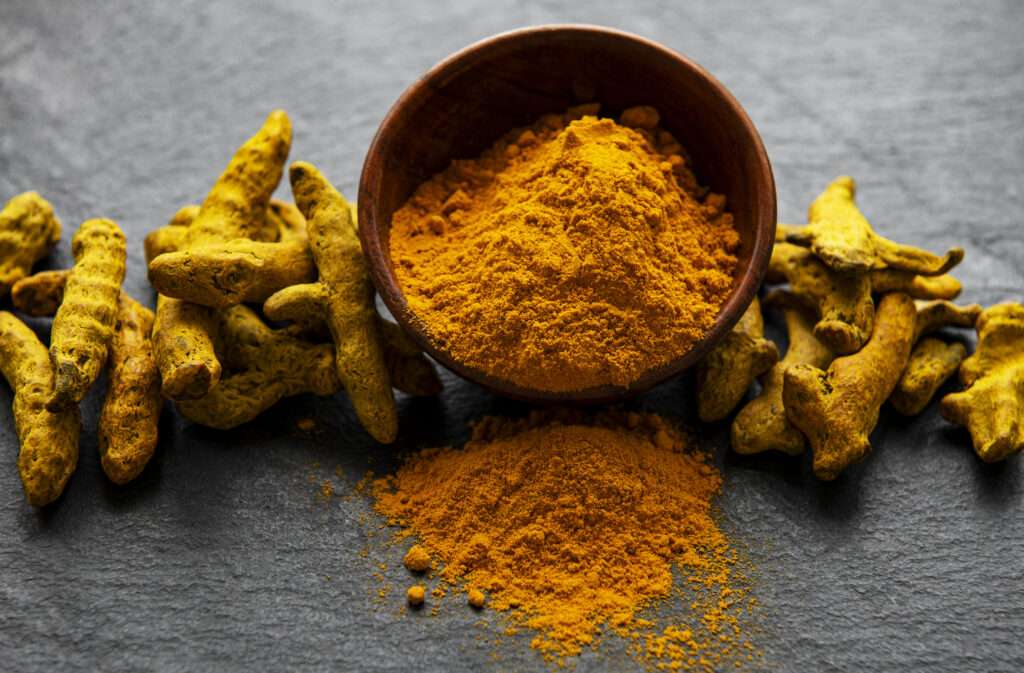Foods to Reduce Inflammation: A Complete Guide
Inflammation is a natural response of the body to injury, infection, or harmful stimuli. However, chronic inflammation can lead to various health issues like heart disease, diabetes, arthritis, and even cancer. Fortunately, the foods we eat can significantly impact our body’s inflammatory response. In this blog, we’ll explore foods to reduce inflammation, their benefits, and how to incorporate them into your diet.
What is Inflammation?
Inflammation is the body’s natural defense mechanism against injury, infections, and harmful substances. It is an essential part of the immune system’s response to heal wounds, fight infections, and protect the body from further harm. However, inflammation can be good or bad, depending on how long it lasts.
Types of Inflammation – Good vs. Bad
Before diving into the best anti-inflammatory foods, it’s important to understand the difference between acute and chronic inflammation.
- Acute Inflammation: This is the body’s immediate response to injury or infection. It helps with healing and goes away once the issue is resolved.
- Chronic Inflammation: This occurs when inflammation persists for long periods, often due to poor diet, stress, or underlying health conditions. It can damage tissues and contribute to serious diseases.
Symptoms of Inflammation
Inflammation can be acute (short-term) or chronic (long-term), and the symptoms vary depending on the type. Here’s a breakdown of the most common signs of inflammation:
1. Common Symptoms of Acute Inflammation (Short-term response to injury or infection)
Acute inflammation happens when your body responds to an injury, infection, or harmful substance. Symptoms appear quickly and usually go away once the issue is resolved.
- Redness – Increased blood flow to the affected area
- Swelling – Buildup of fluid and immune cells in the area
- Pain – Nerve endings become sensitive due to swelling
- Heat – The affected area may feel warm due to increased blood flow
- Loss of function – In severe cases, inflammation can make movement difficult (e.g., swollen joints)
Example: If you cut your finger, you might notice redness, swelling, and pain at the site of the wound.
2. Common Symptoms of Chronic Inflammation (Long-term inflammation that may lead to diseases)
Chronic inflammation develops over time and can last months or years. It is often linked to conditions like arthritis, diabetes, heart disease, and autoimmune disorders.
- Fatigue & Low Energy – The immune system is overactive, making you feel tired
- Joint Pain & Stiffness – Common in conditions like arthritis
- Digestive Issues – Bloating, constipation, diarrhea (linked to gut inflammation)
- Skin Problems – Acne, eczema, rashes, or psoriasis
- Unexplained Weight Gain or Loss – Inflammation can affect metabolism
- Frequent Infections – Weak immune system due to prolonged inflammation
- Brain Fog – Difficulty concentrating or remembering things
Example: People with chronic inflammation may feel constantly tired, have joint pain, or struggle with digestive issues.
3. Internal Symptoms of Inflammation (Hidden signs that may not be visible)
Some inflammation happens inside the body without obvious symptoms. It can be detected through blood tests and medical checkups.
- High C-reactive Protein (CRP) – A blood test that measures inflammation levels
- Increased White Blood Cells – The immune system is in a constant fight mode
- Chronic Headaches – Inflammation can trigger migraines
- Depression & Anxiety – Linked to inflammation in the brain
When to See a Doctor?
If you experience chronic pain, extreme fatigue, unexplained weight changes, or persistent digestive issues, consult a doctor to check for underlying inflammatory conditions.
Top 10 Foods That Help Reduce Inflammation Naturally
1. Fatty Fish
Fatty fish like salmon, mackerel, sardines, and tuna are rich in omega-3 fatty acids (EPA and DHA), which have powerful anti-inflammatory effects.
Benefits:
- Reduces the production of inflammatory compounds
- Supports heart health
- Improves brain function
- Helps with joint pain and arthritis
How to Include in Your Diet:
- Eat at least two servings per week of grilled or baked fatty fish.
- Add canned tuna or salmon to salads and sandwiches.
- Try making fish tacos with avocado and fresh salsa.
2. Berries
Berries such as blueberries, strawberries, raspberries, and blackberries are packed with antioxidants and polyphenols that help fight inflammation.
Benefits:
- Reduce oxidative stress and inflammation
- Improve immune function
- Support brain health
- Help with muscle recovery after exercise
How to Include in Your Diet:
- Add fresh berries to your breakfast cereal, oatmeal, or yogurt.
- Blend them into smoothies with spinach and almond milk.
- Enjoy them as a healthy snack or dessert.
3. Leafy Green Vegetables
Vegetables like spinach, kale, Swiss chard, and collard greens are loaded with vitamins, minerals, and antioxidants that reduce inflammation.
Benefits:
- Protect against chronic diseases
- Improve gut health
- Support immune function
How to Include in Your Diet:
- Add leafy greens to salads, stir-fries, and soups.
- Blend them into smoothies with fruits and nuts.
- Sauté them with garlic and olive oil for a nutritious side dish.
4. Nuts and Seeds
Almonds, walnuts, flaxseeds, chia seeds, and sunflower seeds contain healthy fats, fiber, and antioxidants that help reduce inflammation.
Benefits:
- Support heart and brain health
- Provide long-lasting energy
- Reduce oxidative stress
- Promote gut health and nourish the microbiome
- Help regulate blood sugar and cholesterol levels
How to Include in Your Diet:
- Snack on a handful of nuts and seeds daily.
- Add them to smoothies, yogurt, or oatmeal.
- Use ground flaxseeds or chia seeds in baking or salad dressings.
5. Olive Oil
Extra virgin olive oil is one of the healthiest fats you can consume, thanks to its high content of monounsaturated fats and polyphenols.
Benefits:
- Reduces inflammatory markers in the body
- Protects against heart disease
- Supports brain function
How to Include in Your Diet:
- Use olive oil as a dressing for salads.
- Drizzle it over roasted vegetables or grilled fish.
- Use it for cooking instead of processed oils.
6. Turmeric
Turmeric contains curcumin, a compound with powerful anti-inflammatory properties.
Benefits:
- Reduces inflammation at a cellular level
- Helps with arthritis and joint pain
- Supports digestion and liver health
How to Include in Your Diet:
- Add turmeric to curries, soups, and stews.
- Mix turmeric with warm milk and honey for a soothing drink.
- Take turmeric supplements (after consulting a doctor).
7. Ginger
Ginger contains gingerol, a bioactive compound with anti-inflammatory and antioxidant effects.
Benefits:
- Helps reduce muscle pain and soreness
- Supports digestion and gut health
- Lowers inflammation in people with arthritis
How to Include in Your Diet:
- Drink ginger tea daily.
- Grate fresh ginger into stir-fries and soups.
- Add it to smoothies or juices.
8. Tomatoes
Tomatoes are rich in lycopene, a powerful antioxidant known for its anti-inflammatory effects.
Benefits:
- Protects against heart disease
- Reduces oxidative stress
- Supports skin and eye health
How to Include in Your Diet:
- Eat raw tomatoes in salads and sandwiches.
- Cook tomatoes to increase lycopene absorption (e.g., in sauces and soups).
- Drink fresh tomato juice with a pinch of black pepper.
9. Green Tea
Green tea is loaded with catechins and antioxidants, making it one of the best anti-inflammatory beverages. It also contains a synergistic combination of L-theanine and caffeine, which work together to enhance focus, improve cognitive function, and provide balanced energy without jitters.
Benefits:
- Reduces the risk of chronic diseases
- Supports brain function
- Helps with weight management
How to Include in Your Diet:
- Drink 2–3 cups of green tea daily.
- Add a squeeze of lemon to enhance antioxidant absorption.
- Try matcha green tea for an extra boost.
10. Dark Chocolate
Dark chocolate (with at least 70% cocoa) is packed with flavonoids and antioxidants that combat inflammation.
Benefits:
- Protects against heart disease
- Improves mood and brain function
- Reduces inflammation linked to aging
How to Include in Your Diet:
- Eat a small piece of dark chocolate daily.
- Add cocoa powder to smoothies and oatmeal.
- Choose minimally processed dark chocolate with low sugar.
Foods to Avoid That Increase Inflammation
While eating anti-inflammatory foods is essential, it’s equally important to avoid foods that trigger inflammation, such as:
- Processed foods (chips, fast food, frozen meals)
- Refined carbs (white bread, pastries, sugary cereals)
- Sugary drinks (sodas, fruit juices with added sugar)
- Trans fats (margarine, fried foods, processed snacks)
- Excess alcohol and processed meats
Non-Dietary Ways To Reduce Inflammation
1. Regular Exercise
Staying physically active is one of the best ways to combat inflammation. Exercise helps reduce stress, improves blood circulation, and lowers inflammatory markers in the body.
Best Types of Exercise for Inflammation:
- Walking (at least 30 minutes daily) – Low-impact and easy on joints
- Strength Training (2-3 times a week) – Builds muscle and reduces fat-related inflammation
- Yoga & Stretching – Reduces stress and improves flexibility
- Swimming & Cycling – Great for people with joint pain
- Pilates – Enhances core strength and promotes relaxation
Solution: Find an activity you enjoy and aim for at least 150 minutes per week of moderate exercise.
2. Quality Sleep
Poor sleep leads to higher levels of inflammation in the body. Sleep is when your body repairs itself, so lack of it can worsen chronic inflammation.
Tips for Better Sleep:
- Stick to a consistent bedtime
- Avoid screens (phones, TVs) 1 hour before bed
- Keep your bedroom cool, dark, and quiet
- Reduce caffeine & alcohol intake in the evening
- Try magnesium, chamomile tea, or lavender essential oil for relaxation
Solution: Aim for 7-9 hours of quality sleep per night to allow your body to recover.
3. Stress Management
Chronic stress triggers inflammatory responses in the body, leading to long-term health problems. Managing stress is essential for reducing inflammation.
Ways to Lower Stress:
- Meditation & Mindfulness – Helps lower stress hormones
- Deep Breathing Exercises – Try the 4-7-8 breathing technique
- Journaling – Write down thoughts to clear mental clutter
- Spending Time in Nature – Walk in a park, garden, or near water
- Listening to Music – Calms the nervous system
- Hobbies – Painting, dancing, or playing music can relieve stress
Solution: Set aside 10-15 minutes daily for stress-reducing activities.
4. Stay Hydrated
Drinking enough water helps flush out toxins and reduce inflammation.
Hydration Tips:
- Drink 8-10 glasses of water per day
- Add lemon or cucumber for extra antioxidants
- Drink herbal teas like ginger, turmeric, or green tea
- Eat water-rich foods (cucumbers, watermelon, oranges)
Solution: Keep a water bottle with you and sip throughout the day.
5. Reduce Exposure to Toxins & Pollutants
Environmental toxins can increase inflammation in the body. Reducing exposure to these irritants can help lower inflammatory responses.
Common Toxins to Avoid:
- Cigarette smoke – Triggers chronic inflammation
- Air pollution – Stay indoors on high-pollution days
- Pesticides & chemicals – Choose organic foods when possible
- Household cleaners with harsh chemicals – Use natural alternatives (vinegar, baking soda)
- Excessive alcohol – Limit to moderate consumption
Solution: Improve air quality at home by using air purifiers and keeping indoor plants.
6. Cold Therapy (Ice Baths & Cold Showers)
Cold exposure can reduce inflammation and improve recovery by lowering inflammatory markers.
Ways to Try Cold Therapy:
- Cold Showers – Start with 30-60 seconds at the end of a warm shower
- Ice Packs – Apply to sore muscles or inflamed areas
- Cryotherapy Sessions – If available, try whole-body cryotherapy
- Cold Water Immersion – Taking ice baths after intense exercise
Solution: Gradually introduce cold therapy to reduce inflammation.
7. Heat Therapy (Sauna & Warm Baths)
Heat can also help reduce inflammation by increasing blood flow and relaxing muscles.
Ways to Use Heat Therapy:
- Sauna Sessions – Helps detoxify the body and reduce inflammation
- Epsom Salt Baths – Relaxes muscles and reduces joint pain
- Heating Pads – Good for localized pain relief
Solution: Try a sauna once or twice a week or a warm bath with Epsom salts before bed.
8. Optimize Gut Health (Probiotics & Fiber)
A healthy gut is key to reducing inflammation, as imbalances in gut bacteria can cause an immune response.
How to Improve Gut Health:
- Eat Fermented Foods (yogurt, kefir, sauerkraut, kimchi)
- Take a Probiotic Supplement (check for lactobacillus & bifidobacterium)
- Increase Fiber Intake (whole grains, legumes, fruits, and vegetables)
- Reduce Processed Foods & Sugar (which harm gut bacteria)
Solution: Add probiotic-rich foods to your diet and limit processed foods.
9. Massage Therapy & Acupuncture
Both massage therapy and acupuncture have been shown to reduce inflammation, pain, and stress.
Benefits of Massage & Acupuncture:
- Improves blood circulation
- Reduces stress hormones
- Relaxes muscles and joints
- Supports immune function
Solution: Get a massage once in a while or try acupuncture for pain relief.
10. Reduce Blue Light Exposure (Especially at Night)
Excessive screen time (phones, computers, TVs) increases inflammation and disrupts sleep.
How to Reduce Blue Light Exposure:
- Use blue light filters on devices
- Wear blue light-blocking glasses if working late
- Avoid screens 1 hour before bed
- Spend more time outdoors in natural light
Solution: Reduce screen time in the evening for better sleep and lower inflammation.
FAQs About Foods To Reduce Inflammation
1. What is inflammation, and why does it happen?
Inflammation is the body’s natural defense response to injury, infection, or harmful substances. It helps protect and heal tissues, but chronic inflammation can lead to health problems like heart disease and arthritis.
2. What are the symptoms of inflammation in the body?
Common symptoms of inflammation include redness, swelling, pain, heat, and loss of function in the affected area. Chronic inflammation can also cause fatigue, joint pain, digestive issues, and weight gain.
3. What foods help reduce inflammation naturally?
Foods that reduce inflammation include fatty fish (salmon, sardines), leafy greens (spinach, kale), berries, nuts, seeds, olive oil, turmeric, ginger, and green tea. These foods contain antioxidants and healthy fats that fight inflammation.
4. What foods cause inflammation in the body?
Foods that can trigger inflammation include processed foods, refined sugars, white bread, fried foods, trans fats, sugary drinks, and excessive alcohol. Avoiding these can help lower inflammation levels.
5. Can exercise help reduce inflammation?
Yes, regular exercise helps lower inflammation by reducing stress, improving blood circulation, and maintaining a healthy weight. Activities like walking, strength training, yoga, and swimming are great for reducing inflammation.
6. How does stress affect inflammation?
Chronic stress increases inflammation by raising cortisol levels and weakening the immune system. Managing stress through meditation, deep breathing, journaling, and spending time in nature can help reduce inflammation.
7. How does sleep impact inflammation?
Lack of sleep can increase inflammation by disrupting the body’s natural healing process. Getting 7-9 hours of quality sleep each night helps lower inflammation and supports overall health.
8. Can hydration help reduce inflammation?
Yes, drinking 8-10 glasses of water per day helps flush out toxins and supports the body’s natural anti-inflammatory processes. Herbal teas like green tea, turmeric tea, and ginger tea also help reduce inflammation.
9. What lifestyle changes can help stop inflammation?
To reduce inflammation, focus on:
- Eating an anti-inflammatory diet
- Exercising regularly
- Getting quality sleep
- Managing stress levels
- Staying hydrated
- Avoiding smoking, excessive alcohol, and toxins
10. How can I tell if I have chronic inflammation?
Signs of chronic inflammation include persistent fatigue, joint pain, skin issues, digestive problems, weight gain, and frequent infections. A doctor can check inflammation levels through blood tests like C-reactive protein (CRP) and ESR tests.
Conclusion
Eating the right foods can naturally reduce inflammation, improve overall health, and lower the risk of chronic diseases. Incorporating fatty fish, berries, leafy greens, nuts, olive oil, turmeric, and other anti-inflammatory foods into your diet can make a significant difference.
Start small by adding these foods to your meals and gradually replace inflammatory foods with healthier alternatives. Over time, you’ll notice improved energy levels, better digestion, and overall well-being.
Would you like help with meal planning or anti-inflammatory recipes? Let us know in the comments!
About Us
Ultisana Supplements is a family-owned wellness company focused on community and culture as key pillars of health. Our unique, natural formulas, trusted by doctors in Central America for years, are designed to target health concerns with respect for traditional remedies while being backed by science.

Our Products




